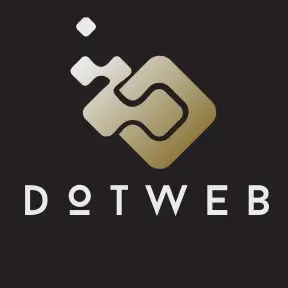1. Utilise SEO Tools or WordPress Plugins.
For WordPress users, optimising your site for search engines is a breeze with the help of SEO plugins. Think of it as a must-have addition to your website toolkit. There’s a variety to choose from, like Yoast SEO or Squirrly SEO, each offering a handy checklist to ensure your site shines in search results.
If WordPress isn’t your platform, fret not. Paid tools like Ahrefs step in as your website’s personal trainer, guiding you toward better rankings and visibility.
Navigating SEO in South Africa can be daunting, especially for small businesses lacking time or resources. In such cases, outsourcing SEO to a professional company might be the smart move. Consider it an investment in your business’s future – a small sacrifice now for potentially significant returns down the road. So, dive into SEO with confidence and watch your online presence flourish!
2. Ensure Search Engine Crawlers Can Access Your Site
Do you feel like your website is a hidden gem lost in the vastness of the internet? It’s time to change that by ensuring search engines can discover and index your site. Don’t worry; it’s not as complex as it sounds.
Start by using the URL Inspection Tool in Google Search Console to confirm your site’s accessibility to web crawlers. Then, sprinkle relevant keywords strategically in your titles and descriptions to enhance your search ranking – think of it as adding flavour to your website.
Additionally, include internal links to related pages to help search engines understand your content better. Keep in mind that Googlebot now prioritises the first 15MB of web content for crawling and indexing. Therefore, prioritise your essential content accordingly. With these SEO strategies tailored for South Africa, you’ll climb to the top of search results in no time!
3. Optimise Website Images for Proper Sizing
Let’s address the elephant in the room: oversized images on your website. While we all appreciate high-resolution product images, sometimes, bigger isn’t better. To prevent your visitors from nodding off while waiting for images to load, it’s crucial to optimise them.
Start by using tools like GTMetrix to gauge your page’s loading times and receive optimisation suggestions. And here’s the good news – you don’t have to sacrifice image quality for speed. Online tools like Tinypng can compress your images without compromising their visual appeal. Your customers in South Africa will appreciate the faster load times, trust me.
4. Steer Clear of Duplicate Content
Are you tired of sounding like a broken record by using the same keyword phrase repeatedly? Well, search engines are tired of it too. To avoid penalties, ensure there’s no duplicate content lurking in your SEO strategy.
Diversify your keyword usage and avoid overloading a single page with too many keywords. Spread them out naturally throughout your content. Each page should boast a unique title tag and meta description to stand out.
And here’s a crucial tip: refrain from using identical keywords across all your websites. Utilise Google Search Console to double-check for any instances of duplicate content and keep your SEO efforts in South Africa clean and effective.
5. Craft a Sitemap
To ensure your website is easily navigated and indexed, creating and submitting a sitemap is essential. Think of it as providing a road map for search engines – without it, they might get lost in the vastness of your site.
Creating an XML file is the preferred method, especially by Google. However, if you prefer, an HTML sitemap can also work wonders for accessibility.
Once your sitemap is ready, submit it to Google Search Console and Bing Webmaster Tools. These platforms will crawl your site and include it in their indexes, boosting your visibility.
And for those using WordPress, fear not. Simply utilise an SEO plugin to effortlessly generate and update your sitemaps. It’s smooth sailing for SEO in South Africa!
6. Create a robots txt file.
Think of the robots.txt file as the bouncer for your website, dictating which areas search engine bots are permitted to crawl and index. You wouldn’t want uninvited guests crashing your party and disrupting your SEO efforts in South Africa, right?
Take a moment to craft a robots.txt file, outlining which pages are open for exploration and which are off-limits. Set clear guidelines, such as how frequently the file should be updated, to maintain order and keep those bots in check.
7. Establish a 404 Page and Address Errors.
Broken links and 404 errors – the dreaded foes of every website! Not only do they send potential customers running for the ‘back’ button quicker than you can say ‘SEO in South Africa,’ but they also pose a threat to your search engine ranking. So, how do you avoid this SEO nightmare? It’s simple!
Regularly check for broken links and swiftly address them by fixing, redirecting, or removing them altogether. And if you’re using WordPress, there’s a handy plugin available to lend a helping hand – talk about convenient!
But why stop there? Elevate your website’s user experience by creating a custom 404 page. This personalised touch can turn a negative experience into a positive one, potentially retaining visitors who stumble upon broken links. Your customers will appreciate the effort, and who knows, they might even stick around to explore more of what you have to offer.
8. Conduct Keyword Research for Secondary Keywords
Choosing the right keywords can be daunting for any SEO specialist. But fret not, my friend – with a few straightforward tips, you’ll be optimising like a pro in no time!
Begin by selecting keywords that are not only relevant to your business and audience but also popular enough to attract traffic. To take it a step further, analyse your competitors to identify any keyword gaps you can capitalise on. Remember, quality trumps quantity when it comes to keywords, particularly when targeting specific markets like South Africa.
Therefore, carefully select your keywords and distribute them strategically across your website, akin to carefully placing puzzle pieces to complete the picture.
9. Explore Your South African Competitors' Keyword Profiles
It’s time to roll up your sleeves and get into the nitty-gritty of your competitors’ keyword tactics. Just because you’re at the top for a keyword doesn’t mean you can sit back and relax.
Think of it as strategic reconnaissance – by analysing what terms and phrases your South African competitors are focusing on, you gain valuable insights into your competition and the preferences of your target audience. Armed with this knowledge, you can refine your own approach to improve your rankings and visibility over time.
10. Understand Your Audience's Search Intent
Are you ready to elevate your SEO strategy? Pay close attention because this step is crucial. In the realm of SEO in South Africa, understanding search intent is paramount. No, it’s not some mystical Zen practice – it’s about grasping what your audience seeks when they hit that search button.
Put yourself in their shoes and delve into the tough questions. What queries do they enter into Google? What answers are they seeking? And most importantly, how can you deliver the solutions they crave? Trust us, investing time in understanding search intent can yield significant results.
11. Implement Rich Snippets and Schema Markup
Integrating rich snippets and schema markup into your website provides search engines like Google with a more comprehensive understanding of your content. But what exactly are rich snippets, and how can they enhance your search presence?
For example, let’s say you run a recipe website. By incorporating schema markup for recipes, search engines can display additional information directly in the search results, such as ratings, cooking time, and calorie count. Users browsing for recipes will be drawn to these enriched listings, increasing the likelihood of them clicking through to your site.
So, not only do rich snippets make your search results more appealing, but they also provide users with valuable information at a glance, ultimately driving more traffic to your website. With rich snippets, you’ll stand out from the competition and solidify your position as a top contender on the SERP menu.
12. Optimise Title Tags, Meta Descriptions, and Image Tags
Let’s discuss the fundamental elements of SEO: title tags, meta descriptions, and image tags. These components play crucial roles in enhancing your website’s performance on search engines.
Title tags are vital for grabbing search engines’ attention and making a strong initial impression. Craft them carefully to accurately represent your content.
Meta descriptions are essential for convincing users to click through to your site from search engine results pages. Ensure they are informative and compelling to attract more visitors.
Image tags, also known as alt text, are essential for describing the content of your images to search engines. By optimising image tags, you improve your website’s accessibility and visibility.
In the realm of SEO in South Africa, optimising these tags is essential for improving your website’s search engine rankings and attracting more organic traffic.
13. Opt for Descriptive URLs
Are you tired of dull and uninformative URLs that offer little to no benefit for your SEO efforts in South Africa? Fear not, my friend, because descriptive URLs are here to rescue your website! Not only do they make it simpler for your customers to locate your site, but they also assist search engines in delivering relevant content to the appropriate audience.
Moreover, descriptive URLs can enhance your click-through rates, ensuring that more users engage with your content. To achieve this, utilise clear and concise language, avoid unnecessary symbols, ensure each URL is unique, and aim to keep them short and succinct. Trust me, your website will reap the rewards of these optimisations!
14. Develop Valuable and Actionable Content
Content creation goes beyond mere words on a page. It’s essential to ensure that your content is engaging, informative, and actionable. Why? Because if it’s as dull as watching paint dry, nobody will stick around to engage with it.
Moreover, if your content doesn’t provide any value, your audience will feel like their time has been wasted. Therefore, it’s crucial to offer them actionable insights that they can implement to achieve tangible results. After all, what’s the point of content if it doesn’t deliver value to your audience?
15. Ensure Your Site is Mobile Responsive
Don’t risk losing potential customers due to a non-mobile-friendly website. It’s essential not to fall into that trap! Considering that there are more mobile devices in South Africa than actual people, overlooking mobile responsiveness is not an option.
To address this, prioritise responsive design, optimise images for mobile viewing, and thoroughly test your site across various browsers and devices. If you encounter any challenges, don’t hesitate to seek guidance from Google Search Console for strategies to enhance your website’s performance on mobile platforms.
16. Don’t use Black Hat SEO.
Let’s discuss black hat SEO, which involves employing unethical tactics to manipulate search engine algorithms for higher rankings. One common black hat technique is keyword stuffing, where irrelevant keywords are unnaturally inserted into content to deceive search engines. For instance, stuffing a web page with repeated keywords unrelated to the content’s context is a black hat practice.
Using link schemes to artificially inflate a website’s back link profile is another black hat tactic. This involves purchasing or exchanging links with low-quality or irrelevant websites solely for the purpose of improving search engine rankings, rather than providing genuine value to users.
These practices might yield short-term gains, but they violate search engine guidelines and can result in severe penalties, including being removed from search engine results altogether.
To maintain your website’s integrity and long-term success, it’s crucial to adhere to ethical, white hat SEO techniques that prioritise user experience and genuine value creation.
17. Utilise a Website Caching Tool
In SEO, the speed of your website is vital. Improving site speed is essential for better performance. One effective way to do this is through caching.
By employing tools like W3 Total Cache or a Content Delivery Network (CDN), your website can navigate through different server locations more efficiently. This optimisation ensures smoother performance, helping you stay ahead of the competition in SEO.
18. Implement Targeted Call-to-Action (CTA) Buttons
The call-to-action (CTA) button is a crucial element on your website, despite its seemingly small stature. It serves as the secret ingredient that elevates your SEO efforts, conversions, and sales. So, what exactly is a CTA? Think of it as a persuasive nudge that prompts your audience to take action, much like the ubiquitous “click here” button we encounter and instinctively click.
However, not all CTAs are equally effective. Surprisingly, a simple text-based CTA can sometimes outperform a flashy image or button, as noted by SEO experts in South Africa. But it’s not just about the words themselves; it’s also about ensuring that your CTAs stand out prominently.
Whether through strategic design or placement, it’s essential to make your CTAs highly visible. By giving due attention to your CTAs, you can enhance your website’s appeal and organisation, ultimately driving better engagement and results.
19. Establish a Reporting Plan for Tracking Your Ranking Success
You’ve prepared your SEO checklist and geared up to tackle the digital realm. However, before diving in, there’s a critical step you must not overlook: monitoring your ranking success. Without keeping tabs on your progress, you’re essentially navigating blindly.
Google Search Console serves as your website’s detective agency, providing insights into performance and traffic. It allows you to track keyword performance, impressions, clicks, and indexed pages, giving your website visibility in the online world.
Additionally, Google Analytics offers a powerful tool for monitoring website traffic, akin to having a personal trainer for your website, guiding you to optimise performance and track progress.
Hence, it’s essential to devise a reporting plan to ensure you stay informed about your ranking success. Without it, you risk being left unaware, much like a bat without sonar.
20. Understand Your Audience and Foster Link Building
In the realm of SEO in South Africa, understanding your audience holds paramount importance. With our diverse Rainbow Nation, what resonates with one cultural group may not necessarily appeal to another. Moreover, language plays a significant role – while English remains prevalent, catering to other languages can offer a competitive edge.
To effectively engage with your audience, prioritise building relevant links. For instance, if you’re in the cosmetics industry, collaborating with beauty bloggers or complementary businesses can be fruitful. Utilise tools like Ahrefs to aid in this endeavour, but exercise caution to maintain organic link-building practices and avoid Google penalties.
Conclusion
Congratulations on completing our SEO checklist journey! While this marks the end of our discussion, the insights and strategies we’ve covered will continue to benefit you in the long term. Remember to stay vigilant with competitor analysis, optimise your images, ensure mobile-friendliness, and leverage keyword analysis tools to stay ahead.
If you ever find yourself in need of guidance, rest assured that Dotweb is here to support you. Our tailored SEO strategies are crafted to attract your target audience and drive organic traffic to your site. Feel free to reach out for an SEO quote whenever you’re ready.
And always keep in mind that organic traffic reigns supreme, providing sustainable growth unlike the fleeting nature of PPC campaigns.
Additionally, don’t miss out on our article: “15 COMPELLING REASONS TO INVEST IN MOBILE APP DEVELOPMENT IN SOUTH AFRICA” for further insights.




